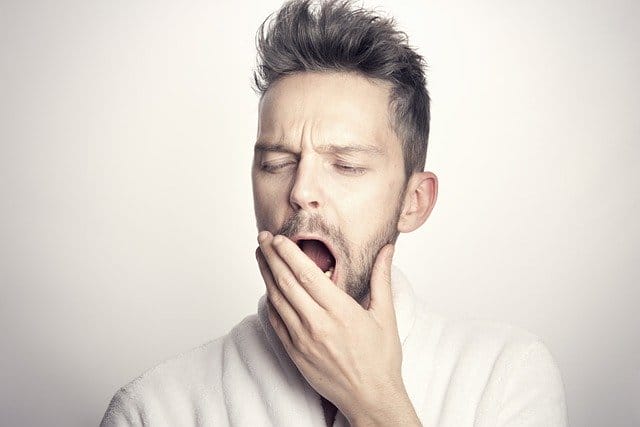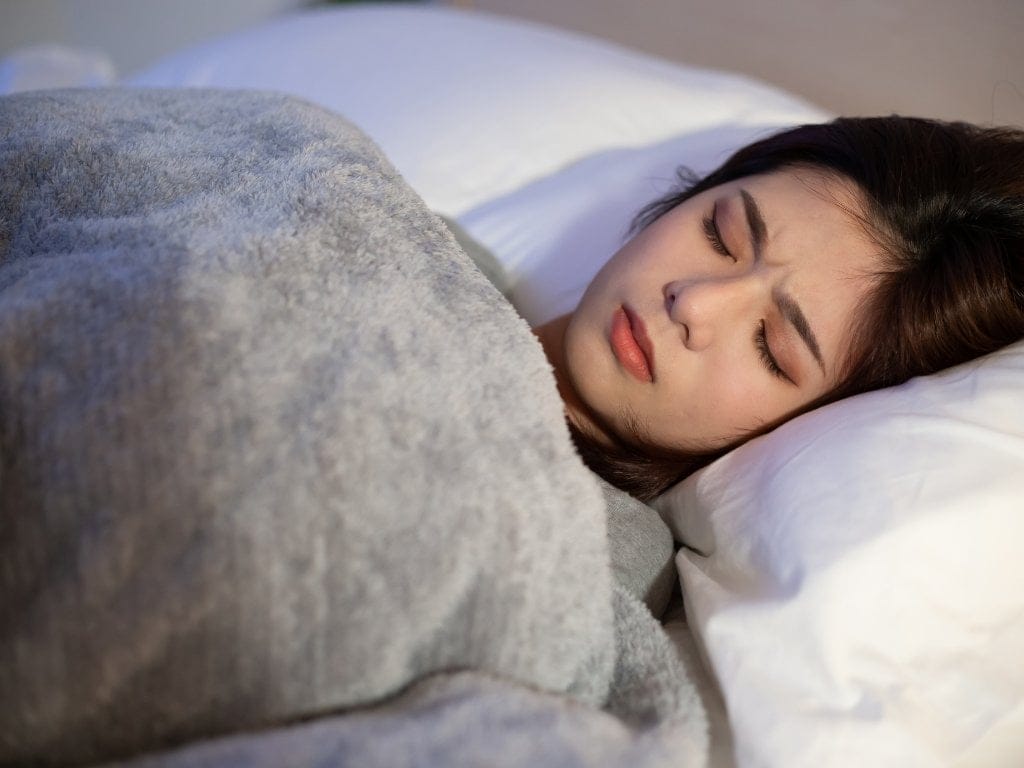Insomnia vs Sleep Deprivation: Get the Facts
Often confused with one another, the terms Insomnia and sleep deprivation are often used interchangeably. While both results in a lack of sleep, which can have a variety of side effects or negative health problems, knowing the difference between the two can help us better understand some of the things that can be done to put us back on track to getting nights of good quality sleep again. This article by the Core Collective and curated by Tropika Club breaks down the differences between insomnia and sleep deprivation and how you can treat both issues.
Table of Contents
No Time to Read? Here’s a Snappy Summary of This Article
- Insomnia vs Sleep Deprivation: The terms are often confused with one another and used interchangeably. While both result in a lack of sleep, knowing the difference between the two can help us better understand how to treat them.
- Sleep Deprivation: Can refer to the shortening or complete loss of sleep due to voluntarily imposed restrictions on your opportunity to sleep. It can also refer to ongoing sleep loss, whether it be voluntary or otherwise.
- Recommended Sleep: Depending on age, the recommended number of hours of sleep that a healthy human should be having every night will vary from person to person.
- Sleep Debt: One becomes sleep deprived if they continue to sleep less than the recommended number of hours for a long period of time. Collectively, this lost sleep is known as ‘sleep debt’ and the more of it you incur, the harder it is to fix.
- Insomnia: The term Insomnia is Latin for “no sleep” and refers to the inability to fall asleep or remain asleep. It’s also used to describe the condition of waking up and not feeling restored or refreshed, despite having had plenty of opportunity to sleep.
- Leading Cause of Insomnia: The leading cause of Insomnia is chronic stress.

Sleep Deprivation
Sleep deprivation can refer to the shortening or complete loss of sleep due to voluntarily imposed restrictions on your opportunity to sleep – for example, staying up all night to study for an exam or working a night shift. It can also refer to ongoing sleep loss, whether it be voluntary or otherwise. Depending on age, the recommended number of hours of sleep that a healthy human should be having every night will vary from person to person. See the chart below and find out if you’re getting enough sleep!
One becomes sleep deprived if they continue to sleep less than the recommended number of hours for a long period of time. Collectively, this lost sleep is known as ‘sleep debt’ and the more of it you incur, the harder it is to fix. Those who are sleep deprived have the power to change their sleeping habits and patterns to improve the amount and quality of sleep you get every night. This, however, isn’t necessarily the case for those dealing with Insomnia.
Read Also:
6 Tips for Better Sleep
Insomnia
The term Insomnia is Latin for “no sleep” and refers to the inability to fall asleep or remain asleep. It’s also used to describe the condition of waking up and not feeling restored or refreshed, despite having had plenty of opportunity to sleep. The leading cause of Insomnia is chronic stress. In response to stressful incidents, the heart starts pounding, breathing quickens and muscles tense. This response, also known as the “fight or flight” response, can be elicited by a number of stressful situations, such as work deadlines, public speaking and even hearing or receiving rude comments.
Those living fast-paced lives who find it difficult to hit the brakes on stress once in a while, are often put under constant levels of stress. The chronic low-levels of stress keep the body’s fight-or-flight response activated and, in time, this has the ability to affect the body in ways that contribute to health problems, such as Insomnia. Insomnia can be acute (short-term) lasting a few days or weeks. Insomnia can also be chronic (long-term) lasting months or even years, and can be associated with other medical conditions or sleep-related disorders.
Unlike those suffering from sleep deprivation, individuals with Insomnia are experiencing a sleep disorder (or the symptom of a sleep disorder or other medical condition). This means that they are less voluntarily able to change their sleeping habits and may need to seek some form of therapy – whether that be cognitive behavioural therapy for Insomnia, sleep medications, a combination of both, or other alternative medicines.

—
Featured Contributors: Dr Verena Tan, NovoTHOR Singapore & RealEase
Dr Verena Tan
Dr Verena Tan is an experienced dietitian with more than 15 years of diverse and well-rounded experience spanning clinical nutrition, academia, research and corporate work. She is currently an Assistant Professor at the Singapore Institute of Technology.
NovoTHOR Singapore
NovoTHOR is a simple, efficient and cost-effective treatment for both acute and chronic inflammation where you only need 20 minutes to feel the positive effects. Individuals with the following problems have benefitted from NovoTHOR – insomnia, sleep deprivation, sports recovery, back and neck pain, fatigue, jet lag, contusions, abrasions, sprains, fractures, ligament injuries, post-surgery rehab for increased flexibility and mobility, plantar fasciitis, oral mucositis and TMD pain. Other benefits include reduction in hair loss, and the production of collagen which improves skin elasticity to slow down the aging process.
RealEase
RealEase is founded by husband and wife, David Thoo and Rowena Choo. Their team of certified Spinal Flow Technique (Spinal Flow) practitioners includes Cwenn Rarnnie Goh.
Spinal Flow is a powerful yet gentle healing modality that facilitates healing via the nervous system and consists of light touches on specific areas of the spine we call access points without manipulation, popping or cracking. Spinal Flow facilitates a full rewiring of the brain and the body relearns what it already knew, to begin with — how to self-heal.
Conclusion
In conclusion, it’s important to understand the difference between insomnia and sleep deprivation. While both can result in a lack of sleep, they have different causes and treatments. Sleep deprivation is often caused by voluntarily imposed restrictions on your opportunity to sleep, while insomnia is the inability to fall asleep or remain asleep despite having plenty of opportunity to do so. The leading cause of insomnia is chronic stress.
At Tropika Club Magazine, we believe that understanding the difference between these two conditions can help us better understand how to treat them. By knowing the recommended amount of sleep for your age and making sure you’re getting enough, you can avoid sleep deprivation. If you’re dealing with insomnia, it’s important to address the underlying cause of chronic stress.
We hope this article has helped you better understand the difference between insomnia and sleep deprivation. Remember to take care of yourself and prioritize your sleep for better overall health and well-being.

Frequently Asked Questions (FAQ)
Q: How common is insomnia in Singapore?
A: Insomnia is a common sleep disorder in Singapore, with a local reported rate of 15.3%. A recent local study also found that 13.7% of older adults aged 60 and above were reported to experience insomnia.
Q: How has COVID-19 impacted sleep in Singapore?
A: early 6 in 10 Singaporeans’ ability to sleep well has been directly impacted by the pandemic. Close to three in 10 Singaporeans say that they now sleep less each night, averaging 6.8 hours of sleep per night, down from seven hours during the previous survey released in 2020.
Q: What is the difference between insomnia and sleep deprivation?
A: Insomnia refers to the inability to sleep adequately, either in length or quality, despite the opportunity to sleep. On the other hand, sleep deprivation refers to curtailed sleep length due to an externally imposed restriction of the opportunity to sleep.
Q: How can I improve my sleep habits in Singapore?
A: To improve your sleep habits, you can try gradually planning your sleep schedule progressively earlier until you hit your target bedtime. It’s also important to fix specific times for sleeping and waking.
Meanwhile, Check Out Tropika Club’s Ecosystem of Websites

Tropika Club Magazine – Tropika Club Magazine is a Singapore-based publication that features articles on a wide range of topics with a focus on local businesses and content for the region. The magazine emphasizes supporting local businesses through its #SupportLocal initiative, which includes coverage of everything from neighborhood hawker stalls to aesthetic clinics in town. In addition to highlighting local businesses, Tropika Club Magazine also covers a variety of local content, including beauty, lifestyle, places, eats, and what’s on in Singapore and the Asia Pacific region.
Tropika Club Deals – Tropika Club Deals is a leading online deals and voucher shopping site in Singapore, offering amazing discounts on beauty, wellness, and fitness products and services. It’s the perfect platform for customers who want to discover the best deals without having to commit to a specific appointment date and time. These deals are available at major beauty stores, facial salons, hair salons, and other brands in Singapore, with no minimum spend required. Choose from guaranteed discounted deals in the categories of hairstyling, hair removal, facial & aesthetics, body slimming, brows & lashes, nails & makeup, massage & spa or fitness & wellness. Tropika Club Deals is also ideal for customers who want to buy vouchers as gifts or to use for the future. So whether you’re looking to save money on your next haircut or want to treat yourself to a relaxing massage, Tropika Club Deals has got you covered with the best voucher and coupon deals in Singapore!




